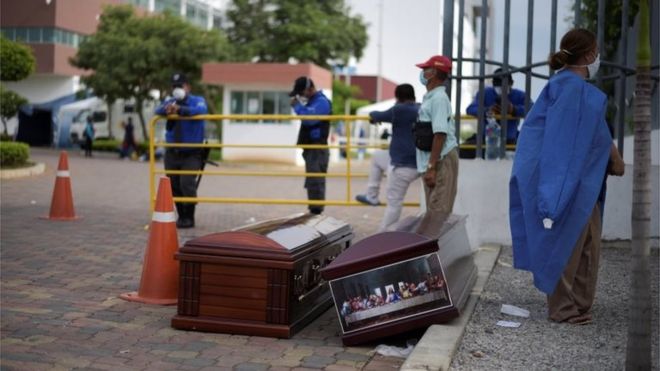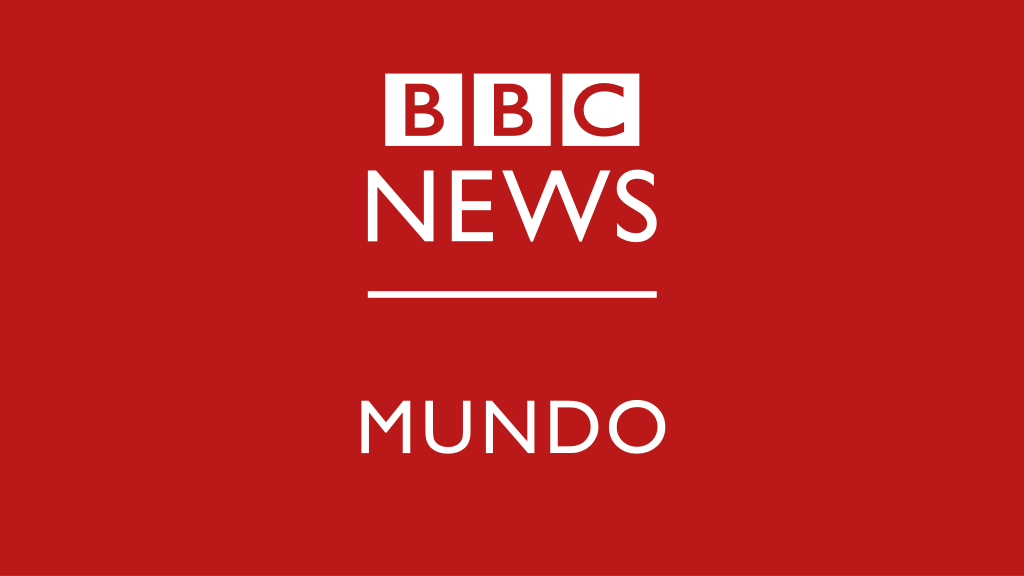Amid COVID-19 pandemic, new WHO report urges greater investments in the nursing workforce. The COVID-19 pandemic has poignantly highlighted the critical role that nurses and other health workers play in protecting people’s health and saving lives. A new report, The State of the World’s Nursing 2020, calls for greater investments in nurses’ education, working conditions, and leadership to strengthen their contributions to health systems.
The Region of the Americas is home to 30% of the world’s nurses, or some 8.4 million people, of whom 87% are female. On average, the Region has 83.4 nurses per 10,000 population, more than twice the global average of 36.9 per 10,000. The figure, however, masks extreme disparities in the availability of nurses in different countries. Fully 87% of all nurses in the Americas are concentrated in just three countries: Brazil, Canada, and the United States, which account for 57% of the Region’s total population. That translates into a density of 80 nurses per 10,000 population in those three countries but contrasts starkly with the less than 10 nurses per 10,000 population in Haiti, Bolivia, and the Dominican Republic...Read more
The Region of the Americas is home to 30% of the world’s nurses, or some 8.4 million people, of whom 87% are female. On average, the Region has 83.4 nurses per 10,000 population, more than twice the global average of 36.9 per 10,000. The figure, however, masks extreme disparities in the availability of nurses in different countries. Fully 87% of all nurses in the Americas are concentrated in just three countries: Brazil, Canada, and the United States, which account for 57% of the Region’s total population. That translates into a density of 80 nurses per 10,000 population in those three countries but contrasts starkly with the less than 10 nurses per 10,000 population in Haiti, Bolivia, and the Dominican Republic...Read more
Policies and Strategies
 Multilateral Entities Coordinate Response to the Regional Impact of COVID-19 at the Level of the Joint Summit Working Group. The institutions agreed that the crisis generated by COVID-19 brings an obligation to strengthen multilateralism in the region, because today more than ever global efforts are required to address a situation that exceeds the individual capacities of the member states of the region.
Multilateral Entities Coordinate Response to the Regional Impact of COVID-19 at the Level of the Joint Summit Working Group. The institutions agreed that the crisis generated by COVID-19 brings an obligation to strengthen multilateralism in the region, because today more than ever global efforts are required to address a situation that exceeds the individual capacities of the member states of the region.
The organizations belonging to the JSWG highlighted the need to make the use of financial resources more flexible in the short term in the region, the need for regional solidarity, and pledged to continue with coordination efforts to strengthen response capacities at the national and regional levels that allow countries to attend to the multiple dimensions of the crisis. The response to the COVID-19 crisis of the organizations represented can be found in the following document, which will be updated here... Read more
 Duque extends quarantine until April 27. President Iván Duque announced this Monday that after having worked with his team of collaborators and listening to their recommendations, the decision was made to extend the quarantine until April 27.
Initially the measure went until this April 13.
Duque extends quarantine until April 27. President Iván Duque announced this Monday that after having worked with his team of collaborators and listening to their recommendations, the decision was made to extend the quarantine until April 27.
Initially the measure went until this April 13.
The head of state said that this was not a political decision, but was made based on recommendations and analysis, with the accompaniment of the Pan American Health Organization... Read more
Coronavirus in Ecuador | "The numbers fall short": Lenín Moreno admits that the crisis of the covid-19 is more serious than reported. "At the beginning we took care of 30 people a day; today there are about 150 people a day that are collected," said Moreno, who announced the creation of a "special body" for the recovery of bodies. Faced with claims that the government is mishandling the situation and little information, Moreno said he has ordered that all information be public and transparent, "as painful this may be."
 The country has been under mandatory social isolation for two weeks, a measure that will last until April 12 given the severity of the infections.
From then on, a "traffic light" of restrictions will be implemented that will govern in the different regions, depending on the local health situation... Read more
The country has been under mandatory social isolation for two weeks, a measure that will last until April 12 given the severity of the infections.
From then on, a "traffic light" of restrictions will be implemented that will govern in the different regions, depending on the local health situation... Read moreTools
The hard choices covid policymakers face. Epidemiological models come in two types. The first seeks to capture the basic mechanisms by which diseases spread in a set of interlinked equations. In the classic version of this approach each person is considered either susceptible, exposed, infectious or recovered from the disease. The number in each group evolves with the numbers in one or more of the other groups according to strict mathematical rules (see chart 1). In simple versions of such models the population is uniform; in more elaborate versions, such as the one from Imperial College London, which has influenced policy in Britain and elsewhere, the population is subdivided by age, gender, occupation and so on...Read more
PAHO launches searchable database on COVID-19 guidance and research. The Pan American Health Organization (PAHO) has launched a new searchable database that contains the latest guidance and research on the COVID-19 pandemic from the Americas and affected countries worldwide.
 The database includes recommendations and guidance from PAHO and the World Health Organization as well as other technical guidelines from Member States, scientific publications, and ongoing research protocols from the region of the Americas. It is intended for use by decision- and policy-makers, researchers, health professionals, and individuals... Read more
The database includes recommendations and guidance from PAHO and the World Health Organization as well as other technical guidelines from Member States, scientific publications, and ongoing research protocols from the region of the Americas. It is intended for use by decision- and policy-makers, researchers, health professionals, and individuals... Read more
Henry Kissinger: "The coronavirus pandemic will alter the world order forever". “The surreal atmosphere offered by the COVID-19 pandemic reminds me of how I felt when I was young in the 84th Infantry Division during the Battle of the Bulge. Now, as at the end of 1944, there is a sense of incipient danger, aimed at no one person in particular and hitting randomly and devastatingly, ”wrote Henry Kissinger in his column published April 3 in The Wall Street Journal. However, he warned, there is an important difference between that distant time and ours: “The American resistance was then fortified by a national purpose. Now, in a divided country, an efficient and forward-looking government is necessary to overcome obstacles that are unprecedented in magnitude and global reach. Maintaining public trust is crucial for social solidarity, for the relationship of societies to each other and for international peace and stability. ”
![Henry Kissinger en el Foro Económico de Beijing, China [21 de noviembre de 2019] (Reuters/ Jason Lee)](https://www.infobae.com/new-resizer/wqLCzR33v6rIYaI8P_uJGVAYpvY=/750x0/filters:quality(100)/arc-anglerfish-arc2-prod-infobae.s3.amazonaws.com/public/JVYZEV7N3JHHFHZFOCL34IQSSY.jpg) For the former US Secretary of State, nations are coherent and prosper with the belief that their institutions can foresee calamities, halt their impact and restore stability. "When the COVID-19 pandemic ends, it will be perceived that the institutions of many countries have failed," he predicted. “The reality is that the world will never be the same after the coronavirus. Discussing the past now only makes it harder to do what needs to be done, ”he added... Read more
For the former US Secretary of State, nations are coherent and prosper with the belief that their institutions can foresee calamities, halt their impact and restore stability. "When the COVID-19 pandemic ends, it will be perceived that the institutions of many countries have failed," he predicted. “The reality is that the world will never be the same after the coronavirus. Discussing the past now only makes it harder to do what needs to be done, ”he added... Read more The United States Needs a ‘Smart Quarantine’. Four key measures, on top of treating the ill and maintaining physical distancing, must be in place not just to slow the rise of Covid-19 cases, but also to bend the curve downward. These are: test widely, isolate the infected, trace the contacts of those infected and quarantine appropriately.
The United States Needs a ‘Smart Quarantine’. Four key measures, on top of treating the ill and maintaining physical distancing, must be in place not just to slow the rise of Covid-19 cases, but also to bend the curve downward. These are: test widely, isolate the infected, trace the contacts of those infected and quarantine appropriately.Of all these measures, the one that will require the greatest adaptation on the part of the American public is isolation and quarantine. Where this has been most successful it has required separate designated facilities to accommodate and monitor those isolated with mild illness and those subject to quarantine. We call this approach “smart isolation and quarantine” or “smart quarantine.”... Read more
Coronavirus | From Ecuador: the drama of Guayaquil, one of the hardest hit cities in Latin America. In this video, Ana María Roura speaks from London with journalists Matías Zibell and Carolina Mella, both in Ecuador, about the critical situation Guayaquil is experiencing due to the pandemic... Watch video
Recommended Event
Tourist Security in times of COVID-19. We will have as guests representatives of: Ecuador Ministry of Tourism Guatemalan Tourism Institute (INGUAT) They will share experiences on the COVID-19 crisis from the area of tourist security. Marko Magdic, senior consultant expert in the field, will offer the conclusions...Register
PPE & Medical Thecnologies



No comments:
Post a Comment